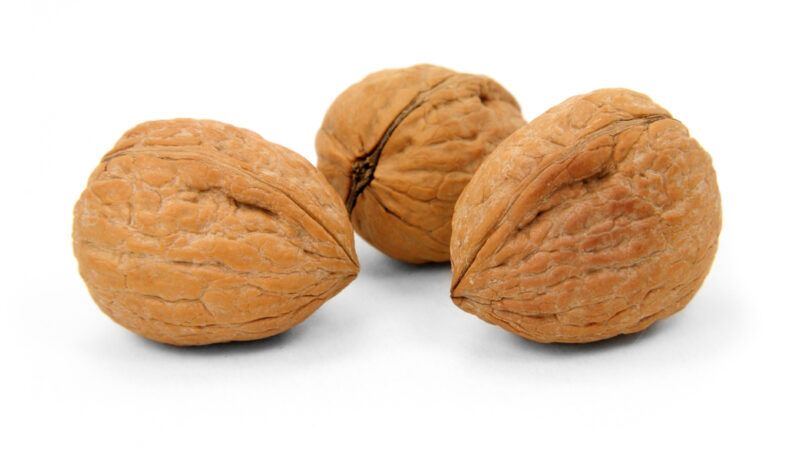Bogus Farms Receive Millions in Government Pandemic Loans Meant for Small Businesses
The Paycheck Protection Program moved billions of dollars out the door incredibly quickly. A lot of it went to the wrong people.

The federal government's flagship pandemic relief program for small businesses managed to get a lot of money out the door very quickly, even to businesses that didn't qualify for the funds or, in more than a few cases, didn't even exist.
That includes a crop of fictional agribusinesses with names like Ritter Wheat Club, Deely Nuts, and Beefy King, all supposedly located in less than arable New Jersey beach towns, and all of which received loans through the Small Business Administration's (SBA) Paycheck Protection Program (PPP).
"There's no farming here: We're a sandbar, for Christ's sake," Long Beach Township Mayor Joe Mancini, whose address was used on one of these fraudulent applications, told ProPublica, which published an investigation of PPP fraud yesterday.
The purpose of PPP was to keep small businesses afloat during the worst of the pandemic when government shutdown orders forced many to close, and voluntary social distancing kept customers away from whichever shops were still allowed to be open.
The CARES Act, passed in March, approved $349 billion for the new program, which would be used to pay fees and reimburse banks that made low-interest loans to qualifying small businesses. Recipients of these loans could have their debts forgiven provided they spent the PPP loans on qualifying expenses like payroll, rent, and utilities. Subsequent bills passed by Congress allotted an additional $609 billion to the program.
ProPublica's story focuses on fintech business Kabbage, which was a major early PPP lender, making nearly 300,000 loans (second only to Bank of America) before the original round of funding for the program was exhausted. Of those, at least 378 went to fake businesses.
The program's fraud and misappropriation problems run far deeper than a single company, however, with much of the blame being placed on the SBA's hurried efforts to get these emergency loans out the door as quickly as possible.
"SBA quickly made billions of dollars of capital available to millions of businesses affected by the COVID-19 pandemic," notes an SBA Office of the Inspector General (OIG) report from January 2021. "However, although SBA made efforts to expedite capital to businesses as intended by the [CARES] Act, SBA lacks assurance that loans went to only eligible recipients."
"Loans given to ineligible borrowers placed taxpayer funds at risk of financial loss and delayed the amount of available critical capital needed for eligible businesses to withstand the effects of the pandemic during the first round of PPP funding," the report continues.
The OIG report found that some 55,000 loans, worth approximately $7 billion, were made to potentially ineligible businesses. That includes some 5,000 businesses that received some $403 million in loans despite having registered a Tax Identification Number after the February 15 cutoff for the program. That number likely undercounts the number of ineligible recipients, as the OIG report excludes sole proprietorships, the business organization method used by many of the fake farms ProPublica identified.
The OIG report also discovered another 43,000 loans, worth $11 billion, that exceeded the per-employee maximum loan amounts allowed by the program.
The Department of Justice has charged at least two people for buying Lamborghinis with their loans.
Businesses connected to Jared Kushner and Kanye West also received PPP loans, as did a number of nonprofits that either criticize government funding for a living or swear off ever receiving it.
Another problem that ProPublica identified is that the 5,000 or so lending organizations the SBA used to disperse PPP loans had little incentive to make sure their loans were going to the right people. Because these loans were guaranteed by the government, lenders faced little downside risk so long as they did the minimum vetting required by the law.
This is the paradox of "emergency" lending: Fast dispersal means less time to verify applicants are eligible; more due diligence means a slower dispersal of funds.
The SBA clearly prioritized speed over all else when it came to the administration of PPP. That speed not only sent a lot of money to fraudsters, it also deprived legitimate businesses of the scarce funding allotted to the program.
Proponents of the program could well argue that this was appropriate given the dire situation faced by small businesses in March and April 2020. For all the fraud, it was still a lifeline for millions of eligible business owners (including a few interviewed by Reason).
The unattractive tradeoff between expediency and propriety remains, however, and is one reason to favor private, voluntary, decentralized efforts to help people and businesses during emergencies; or, in the case of COVID-19, a reason to oppose restrictions on small businesses that prevented them from helping themselves.
Rent Free is a weekly newsletter from Christian Britschgi on urbanism and the fight for less regulation, more housing, more property rights, and more freedom in America's cities.



Show Comments (22)